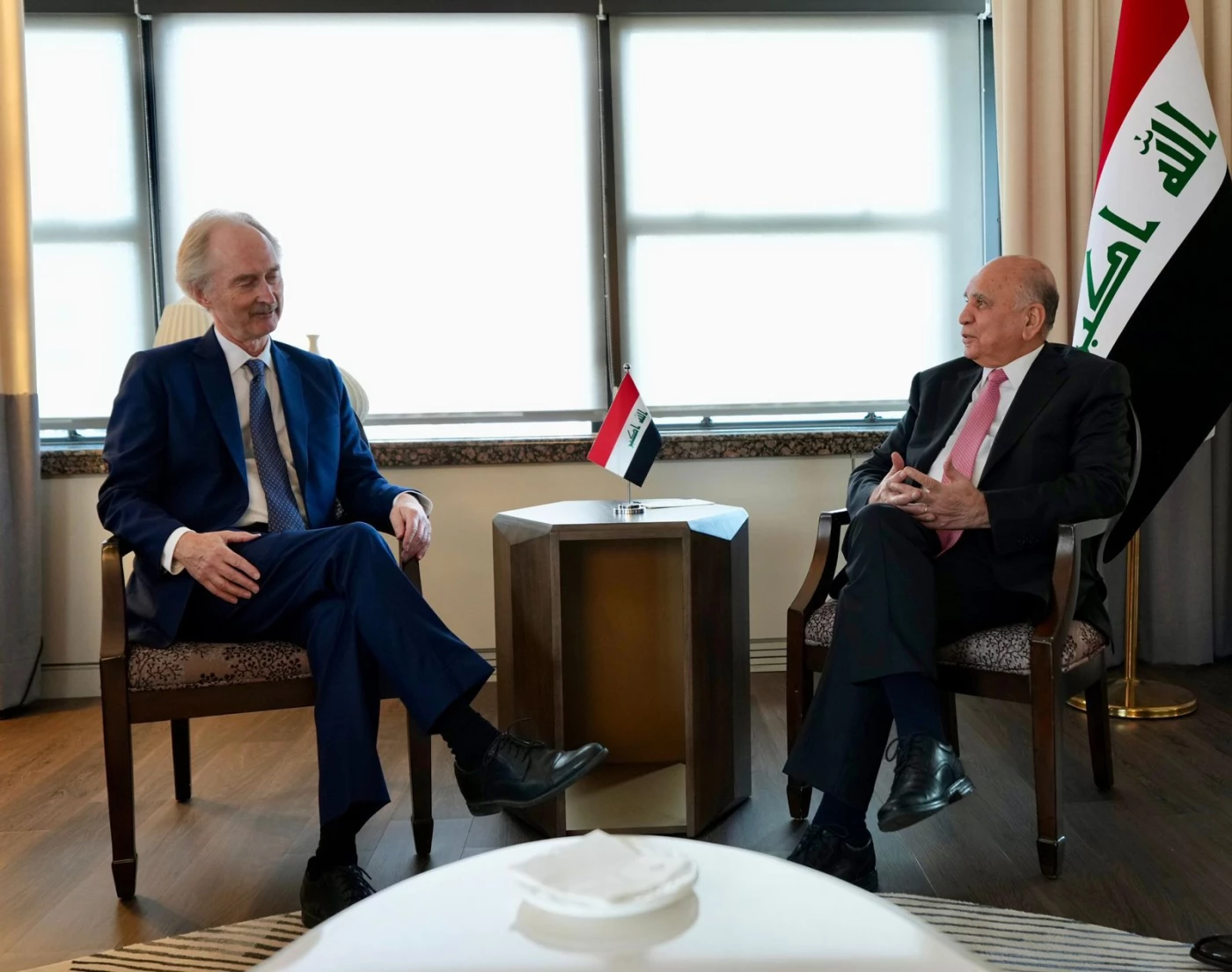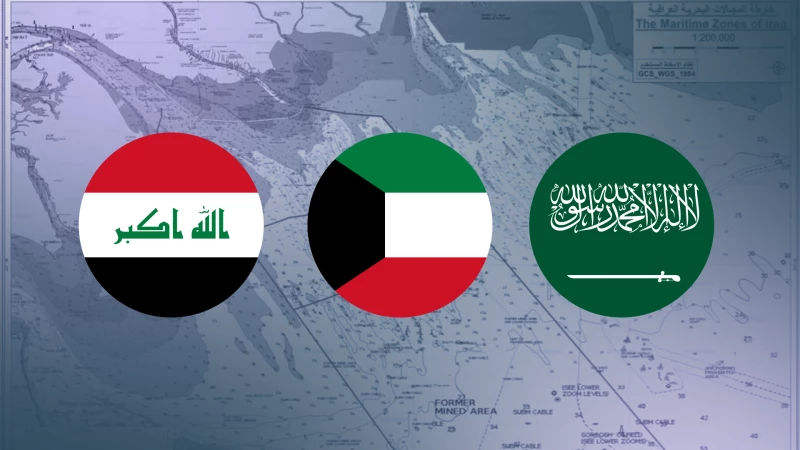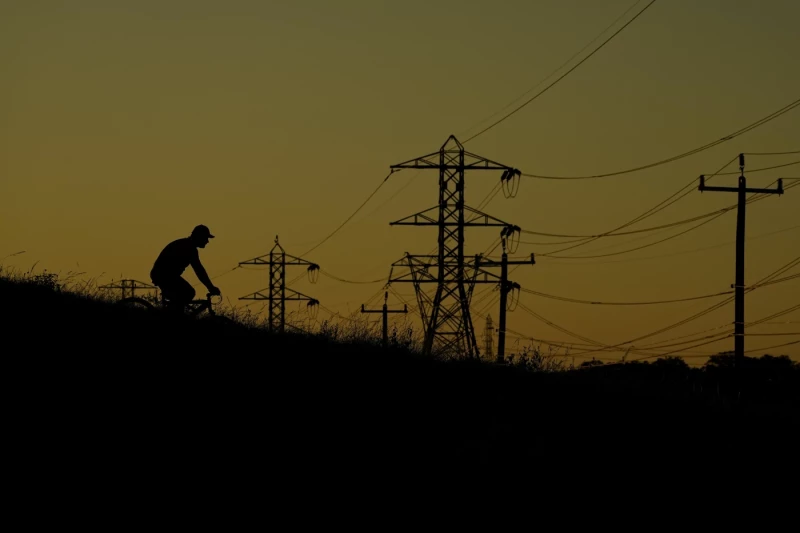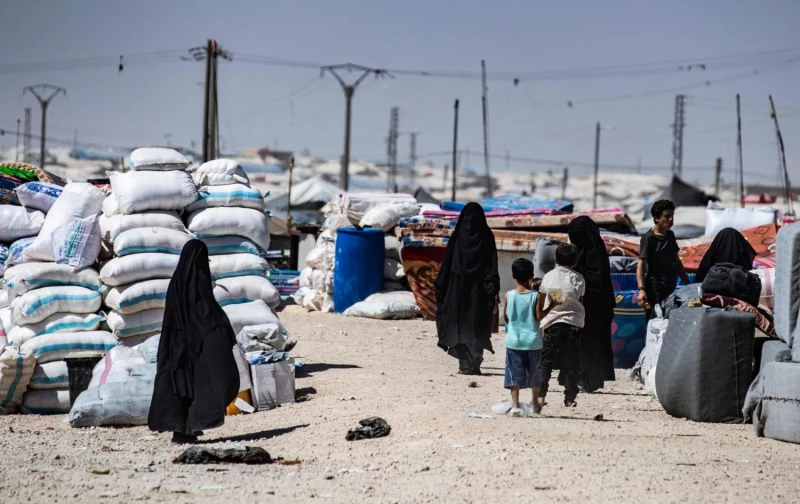ERBIL, Kurdistan Region of Iraq - Iraqi Foreign Minister Fuad Hussein on Sunday met with UN Special Envoy for Syria Geir Pederson, with the pair discussing recent developments in Syria, political pathways, and the al-Hol camp.
The meeting, which also included Iraqi National Security Advisor Qasim al-Araji, saw the Iraqi top diplomat and the UN official discuss "developments in various Syrian regions, focusing on their impact on regional stability," according to an Iraqi foreign ministry statement.
In regard to the current political situation in Syria, Hussein "affirmed Iraq's firm position calling for a political solution that ensures the participation of all Syrian factions without exclusion or marginalization," while Pederson stressed the UN's efforts to support the political process.
"The UN envoy praised Iraq's pivotal role and efforts in bringing Syrian parties closer together, stressing that Syria's stability is a decisive factor for the stability of Iraq and the entire region, especially since Syrian developments directly affect Iraqi security," the statement continued.
The current Damascus government, which seized power from former Syrian President Bashar al-Assad in December, has faced allegations of excessive centralization and efforts to exclude members of the country's diverse ethnic and religious minorities, including Kurds, Alawites, Druze, and Assyrians.
Syria’s Higher Committee for People’s Assembly Elections on Sunday announced that the country's parliamentary elections will be held on October 5, Syrian state media reported.
Hasakah and Raqqa, two provinces under the control of the Kurdish-led Syrian Democratic Forces (SDF), will be included in the voting, reversing a prior decision to postpone the electoral process in the SDF strongholds. However, the Druze-majority Suwayda province still faces postponement, with Syrian authorities citing a lack of state control in the country's troubled southern region.
Since Syrian President Ahmed al-Sharaa took power in the country, Syria's Druze population has faced repeated episodes of sectarian violence, with clashes with Sunni Bedouins and government forces in July resulting in the deaths of over 2,000 people.
The al-Hol issue
Hussein and Pederson also discussed the situation of camps holding displaced individuals and former Islamic State (ISIS) fighters in Syria, most saliently the al-Hol camp.
Located in northern Syria’s Hasakah province, al-Hol houses around 40,000 Islamic State (ISIS)-affiliated individuals from over 60 different nationalities and has often been referred to as a “ticking time bomb” by Iraqi authorities.
During the meeting, "emphasis was placed on the importance of countries withdrawing their nationals from these camps in preparation for their closure and addressing the humanitarian repercussions of the crisis," the Iraqi foreign ministry statement read.
Iraq has repatriated over 15,000 of its nationals from the camp over the years—more than any other country—and aims to complete repatriation by the end of 2025. The camp reportedly still holds over 13,000 Iraqis.
Iraq’s Minister of Migration Evan Faek Gabro on Friday said that an international conference calling for the repatriation of persons from Syria’s al-Hol camp will be held on the sidelines of the upcoming UN General Assembly, in preparation for the camp’s planned closure. Gabro said the conference will take place on September 26 and will be attended by regional and international representatives.
Hussein is one of the key Iraqi officials in New York set to represent the country at the UN General Assembly, being joined by Iraqi President Abdul Latif Rashid and Kurdistan Region Deputy Prime Minister Qubad Talabani.
Pederson, meanwhile, recently announced that he will resign from his role as special envoy in the near future, with the Norwegian diplomat's departure coming after six years in his current role.
The UN announced his resignation on Wednesday, noting that he opted to step down for personal reasons.



 Facebook
Facebook
 LinkedIn
LinkedIn
 Telegram
Telegram
 X
X


